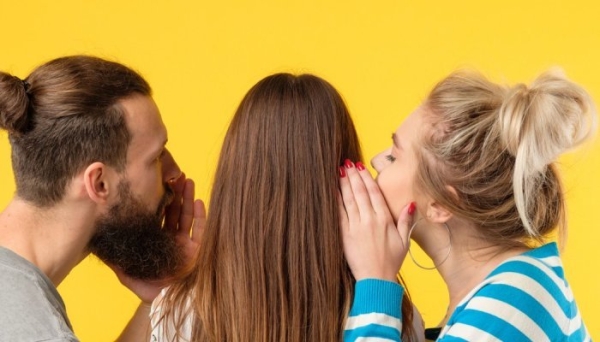
Times are tough for influencers, with some being investigated for their participation in scams and others being scrutinized for various wrongdoings. And that’s not all. Over on TikTok, we’re seeing a plethora of videos encouraging consumers to think twice before buying certain influencer-recommended products. Is this the new era of the de-influencer?
Are the days of influencers telling us what to buy, what to wear, what to watch and who to follow coming to an end? Since the beginning of the year, the TikTok community, and more particularly Generation Z, has been indicating that they’re fed up with influencers, a communal sentiment that has given rise to the hashtag #deinfluencing. This term currently totals more than 150 million views on the platform. It’s proving particularly popular in the beauty and lifestyle communities, where it reportedly got its start.
According to a 2020 Kantar study relayed by Marketing Dive, more than a quarter of the general population has made a purchase based on a recommendation from an influencer. A rate that rises to 44% for Gen Z.
However, followers are now more aware of influencers’ marketing strategies. Better informed, they are becoming increasingly vocal about taking steps to no longer be duped. A new wave of videos on TikTok criticize influencers. These videos urge users to carefully consider their purchases and even to refrain from buying and save their money. Their aim is to help other users not fall for a scam or even an over-hyped product that just doesn’t live up to the attention. These videos have given rise to the term “de-influence.”
Tackling compulsive shopping
In a series of videos, TikToker Michelleskildelsky, a self-described former compulsive shopper, lists some of the “useless” products that influencers recommend acquiring: Apple AirPods Max, 25 different perfumes, Ugg slippers, a multitude of beauty products… Her videos have been viewed hundreds of thousands of times. In the comments, some users suggest cheaper alternatives, while others recognize that they have been guilty of falling for such unnecessary purchases. And there are many videos in this vein. Some people even make a project out of buying products recommended by influencers and setting out to critique them and deconstruct their lack of utility, no holding back.
For Kahlea Nicole Wade, a brand collaboration coach and content creator, de-influencing is about trust and reclaiming their power, especially for Gen Z, she told Today.
And indeed in certain recent well-publicized cases, some influencers have been called out for being untrustworthy. Such as the “MascaraGate” incident involving an influencer being accused of wearing false eyelashes while promoting the virtues of a mascara from L’Oréal.
Individual responsibility
In response to such critiques, some influencers are calling for everyone to take responsibility for themselves and their purchases. France-based Coline, who counts nearly 400,000 followers on her Instagram page, is among them. In one of her recent videos, she argues that followers are all responsible for their own purchasing decisions, and that influencers are “strangers” who recommend products so people need to make up their own minds and take their own needs and tastes into account when buying something.
Some detractors of this new trend on TikTok point out that not all the messages are not necessarily aimed at reducing users’ consumption generally. Some de-influencers criticize over-hyped products and encourage their followers to buy cheaper ones, as in this video from @alyssastephanie.
One thing is certain, however, naivety and ingenuity in the face of social networks are declining a little more.
